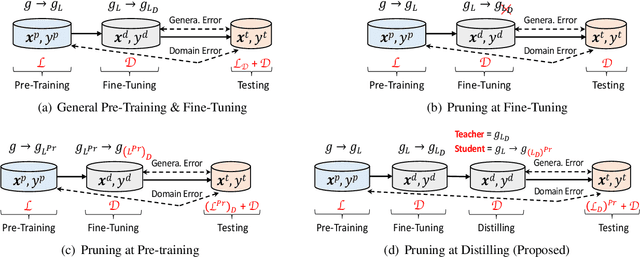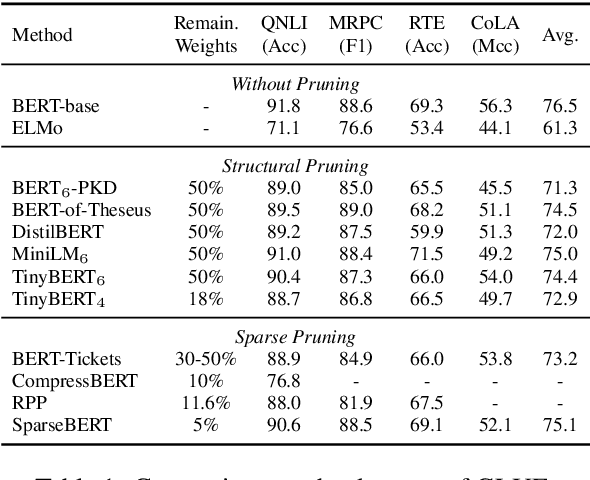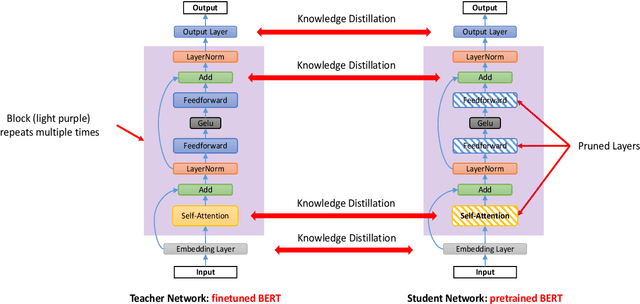Jinxi Zhao
Rethinking Network Pruning -- under the Pre-train and Fine-tune Paradigm
Apr 18, 2021



Abstract:Transformer-based pre-trained language models have significantly improved the performance of various natural language processing (NLP) tasks in the recent years. While effective and prevalent, these models are usually prohibitively large for resource-limited deployment scenarios. A thread of research has thus been working on applying network pruning techniques under the pretrain-then-finetune paradigm widely adopted in NLP. However, the existing pruning results on benchmark transformers, such as BERT, are not as remarkable as the pruning results in the literature of convolutional neural networks (CNNs). In particular, common wisdom in pruning CNN states that sparse pruning technique compresses a model more than that obtained by reducing number of channels and layers (Elsen et al., 2020; Zhu and Gupta, 2017), while existing works on sparse pruning of BERT yields inferior results than its small-dense counterparts such as TinyBERT (Jiao et al., 2020). In this work, we aim to fill this gap by studying how knowledge are transferred and lost during the pre-train, fine-tune, and pruning process, and proposing a knowledge-aware sparse pruning process that achieves significantly superior results than existing literature. We show for the first time that sparse pruning compresses a BERT model significantly more than reducing its number of channels and layers. Experiments on multiple data sets of GLUE benchmark show that our method outperforms the leading competitors with a 20-times weight/FLOPs compression and neglectable loss in prediction accuracy.
 Add to Chrome
Add to Chrome Add to Firefox
Add to Firefox Add to Edge
Add to Edge